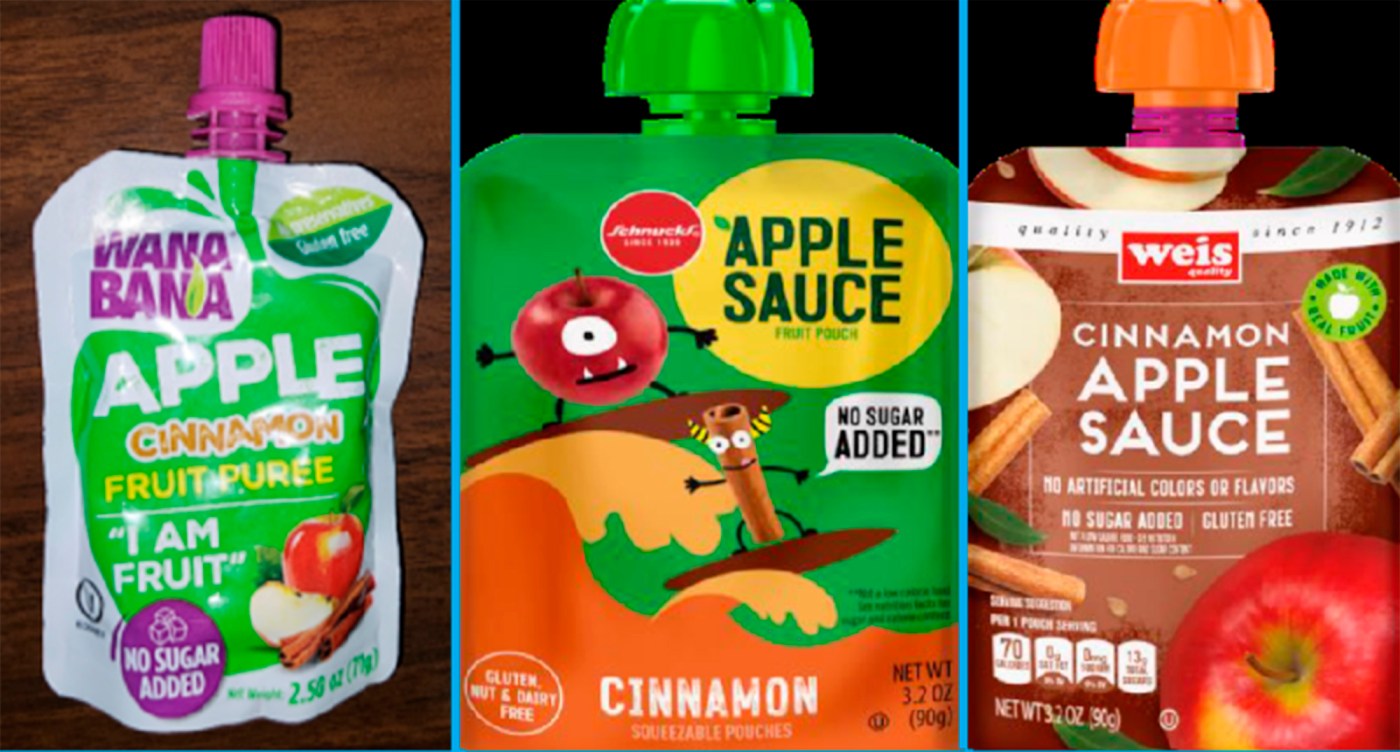
Williams: FDA’s pouch puree purge could harm consumers
Bureaucrats at the Food and Drug Administration have soured on children’s fruit pouches. In October, the FDA traced elevated lead levels in the blood of four children to apple cinnamon fruit puree pouches and warned parents not to purchase the allegedly harmful products. A recall ensued.
Now, three companies have taken their fruit pouch products off the market. It remains to be seen whether the lead-fruit pouch link can withstand closer and independent analysis.
Unfortunately, the agency has a track record of overzealously policing lead levels in fruit products and pursuing cost-prohibitive policies. Regulators should reserve recalls for truly dangerous situations and allow consumers access to safe and affordable products.
Lead contamination remains a critical problem. According to a 2021 study published in JAMA Pediatrics, more than half of children in the United States have detectable levels of lead in their blood, and even small concentrations in the blood can result in mental impairment. These elevated levels have more to do with where exposed children grew up rather than what they ate or drank. Older government-built projects (yes, the government causing lead contamination is rich with irony) with lead-based paint create an outsized risk of children being exposed to lead, especially when young children play with and consume chipped-off wood covered in lead-based paint.
In contrast, dietary lead exposure poses a relatively minor issue for consumers.
A 2019 study published in Environmental Science concluded that lead in the American diet was, on average, associated with a minuscule 0.04-point drop in IQ. Even the “most exposed” 1% of the population is projected to have an IQ drop of only about a third of a point. The researchers explain that, in Europe and China, “the impact of dietary lead on IQ is low but not entirely negligible, with average decrements of 1–2 IQ points, and decrements of 5 or more IQ points in children with higher dietary lead exposures. The estimated impacts in the U.S., Canada, and New Zealand are much lower.”
Fruit juice and purees are unlikely to account for an outsized part of this already minimal dietary lead exposure. Data from the 2009 to 2014 National Health and Nutrition Examination Surveys failed to demonstrate a link between moderate fruit juice consumption and blood lead levels. While it is likely true that lead causes some level of harm even at low doses of exposure, effects are likely insignificant if the product does not elevate blood lead levels.
Health harms can result because the FDA mandates even lower lead levels in the food supply than current regulations permit. The FDA believes its lead initiatives could result in decreased importation of fruit products from abroad but fails to mention that lessened trade could further impoverish foreign farmers selling their goods to the United States.
That, in turn, could mean fewer educational options for farmers’ children and lower-quality diets for their families. The FDA would be wise to consider these unintended policies when crafting regulations. While the agency has the admirable goal of minimizing exposure to lead, regulators must look at the entire picture before pushing for recalls and imposing new mandates on producers. A far sweeter approach would be regulatory reform and flexibility.
David Williams is president of the Taxpayers Protection Alliance/InsideSources

